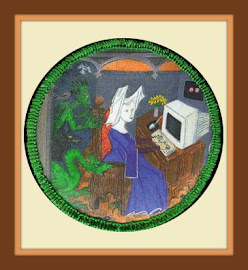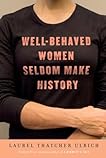I have been working on a couple more books about Italy on this trip.
 First, Brunelleschi's Dome: How a Renaissance Genius Reinvented Architecture by Ross King is about the completion of the dome of the Duomo in Florence. It is interesting, although it was a little technical for my taste, with a few too many details about the engineering feats Brunelleschi accomplished. I was suprised to learned that the dome is one the largest ever built--massive in its entirity. Brunelleschi not only had to design a dome that would not collapse under its own weight (using innovative techniques such as a double dome with empty between the two layers, a herringbone pattern to lay the bricks in order to provide strength, and a chain of stone built within the brick to provide support) , he also invented a machine to lift the heavy beams and slabs of marble to several hundred feet above the ground and figured out a way to erect the dome without the use of centering--wooden frames used to hold up the arch. There is also some information about Brunelleschi's personality.
First, Brunelleschi's Dome: How a Renaissance Genius Reinvented Architecture by Ross King is about the completion of the dome of the Duomo in Florence. It is interesting, although it was a little technical for my taste, with a few too many details about the engineering feats Brunelleschi accomplished. I was suprised to learned that the dome is one the largest ever built--massive in its entirity. Brunelleschi not only had to design a dome that would not collapse under its own weight (using innovative techniques such as a double dome with empty between the two layers, a herringbone pattern to lay the bricks in order to provide strength, and a chain of stone built within the brick to provide support) , he also invented a machine to lift the heavy beams and slabs of marble to several hundred feet above the ground and figured out a way to erect the dome without the use of centering--wooden frames used to hold up the arch. There is also some information about Brunelleschi's personality. Second, Sprezzatura: 50 Ways That Italian Genius Shaped the World is 50 essays that can be read individually about 50 mostly individuals (but a few other Italian phenomena--Venice, Roman building advances, Medicis and banking, and Italian fashion for example). Starting from the Roman period, the authors move to contemporary times. I read probably 75% of it, focusing on the earlier periods of Roman and Renaissance contributors. Each essay felt a little too packed with details, but overall it was interesting. After reading it, I decided that I had missed out on some classical literature, including Ovid, Dante, Petrach, and Boccacio among others. I almost persuaded myself to read thier major works. But, when I saw The Divine Comedy and Decameron in a Florence bookstore, I rethought my noble idea and decided to put this on my back burner book list. Maybe I could read a little bit at a time some other time??? Among the more interesting essays, I enjoyed learing the development of the modern calendar and Julius Ceasar's involvement with it (perhaps because it was the first one in the book). I also enjoyed reading about the figures of the Renaissance like Michelangelo, Galileo, Machiavelli, da Vinci, the Medicis, and Palladio.
Second, Sprezzatura: 50 Ways That Italian Genius Shaped the World is 50 essays that can be read individually about 50 mostly individuals (but a few other Italian phenomena--Venice, Roman building advances, Medicis and banking, and Italian fashion for example). Starting from the Roman period, the authors move to contemporary times. I read probably 75% of it, focusing on the earlier periods of Roman and Renaissance contributors. Each essay felt a little too packed with details, but overall it was interesting. After reading it, I decided that I had missed out on some classical literature, including Ovid, Dante, Petrach, and Boccacio among others. I almost persuaded myself to read thier major works. But, when I saw The Divine Comedy and Decameron in a Florence bookstore, I rethought my noble idea and decided to put this on my back burner book list. Maybe I could read a little bit at a time some other time??? Among the more interesting essays, I enjoyed learing the development of the modern calendar and Julius Ceasar's involvement with it (perhaps because it was the first one in the book). I also enjoyed reading about the figures of the Renaissance like Michelangelo, Galileo, Machiavelli, da Vinci, the Medicis, and Palladio.











1 comment:
The Divine Comedy is a fun read. Mostly.
Post a Comment